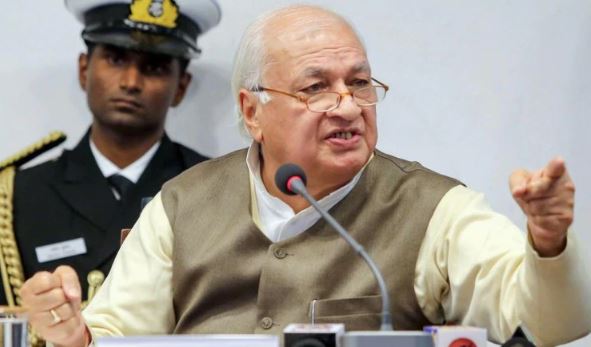Panaji: Taking a swipe at the anti-CAA protest at Delhi’s Shaheen Bagh, Kerala Governor Arif Mohammad Khan Sunday said what is happening there is not an expression of the right to dissent, but ‘an attempt to impose views on others’.
Some people have decided to take the law into their hands and disrupt normal life, he said on the sidelines of a conference here.
A group of protesters, mainly women, have been staging a sit-in at Shaheen Bagh against the Citizenship Amendment Act (CAA), National Register of Citizens (NRC) and National Population Register (NPR) for the past two months.
The sit-in on the major thoroughfare connecting South Delhi with Noida has led to suspension of vehicular traffic.
“This is not the right to dissent, this is an attempt to impose views on others. You have the right to express your views but you don’t have the right to disrupt normal life,” the governor told reporters.
Asked about protests in various parts of the country against the CAA, he said that even in 1986 there were lakhs of people who were opposed to the Supreme Court’s Shah Bano judgment being reversed.
“But was it justified on my part to say that I am going to sit in (in protest) till the law is withdrawn,” said Khan, who had in 1986 walked out of the Rajiv Gandhi Cabinet over the issue.
Khan was here to speak on the topic ‘Free Speech, Censorship & the Media: Does Law Impede Freedom of Speech?’ at the ‘Difficult Dialogues’ conference at the International Centre Goa.
He said one can have a dialogue with somebody who is expressing an opinion but it is difficult in this instance when protesters refuse to budge.
“When you have this attitude that only I am right then dialogue is not happening. Dialogue happens when you are open to listening. Here, it is being asserted forcefully that we will not get up unless this law is withdrawn. The government is not going to decline dialogue if somebody comes,” Khan said.
Citing a survey done by a Pakistan-based NGO, he said in 2019 more than 1,000 girls were kidnapped and forced to change their religion in the neighbouring nation.
“I feel the manner in which Pakistan was created and the manner in which it is conducting its affairs has unfortunately distorted thinking of many people here in India,” he said.
He said that taking into consideration India’s culture and civilisation ‘we have to be liberal, opinionated, we have to accept and respect diversity but at the same time we cannot ignore facts’.
On the Kerala government invoking Article 131 in the Supreme Court to challenge the CAA, he said the matter will be decided by the court.
“It is for the court to decide whether the government can come to it without clearance from the governor,” Khan said.
The Pinarayi Vijayan-led LDF government in Kerala last month moved the apex court seeking to declare the CAA as illegal for violating of the Constitution’s Article 131, which empowers the Supreme Court to hear disputes between the government of India and one or more states.
Under the new citizenship law, members of Hindu, Sikh, Buddhist, Jain, Parsi and Christian communities who have come from Pakistan, Bangladesh and Afghanistan till December 31, 2014, and facing religious persecution there will not be treated as illegal immigrants, and be given Indian citizenship.
PTI

